Are you planning a home renovation and need to notify your neighbors? Crafting the perfect letter can make all the difference in maintaining good relationships within your community. In this article, we'll provide a simple template to help you communicate your renovation plans effectively and courteously. So, let's dive in and explore how to keep everyone in the loop!

Purpose of renovation
Home renovation projects often serve various purposes, including enhancing aesthetics, improving functionality, or increasing property value. Renovations may involve updating outdated features, such as kitchens and bathrooms, which directly impacts daily living experiences. Structural changes, like adding new rooms or altering layouts, cater to evolving family needs or lifestyles. Additionally, energy-efficient upgrades, such as installing new windows or insulation, can result in decreased utility costs and a reduced environmental footprint. Homeowners might also aim to modernize systems like plumbing and electrical, ensuring safety and compliance with current building codes. All these factors contribute to a more comfortable, appealing, and valuable living space.
Expected timeline and schedule
Renovation projects in residential homes can significantly impact daily routines and activities. Renovation timelines typically span several weeks, with initial assessments and planning taking approximately two weeks. Contractors and homeowners often establish a detailed schedule to outline each phase, such as demolition (commonly lasting one week), construction (which can extend to four weeks depending on the complexity of design), and finishing touches (usually a week for painting and installations). Communication regarding changes or delays is crucial for a smooth process, especially in urban areas like Los Angeles or New York, where permits and inspections may add additional timeframes. Regular updates can help homeowners manage expectations throughout the renovation journey.
Potential disruptions and inconveniences
Home renovation projects often lead to potential disruptions and inconveniences for residents. During construction periods, including interior renovations in spaces such as kitchens and bathrooms, noise levels can reach over 90 decibels, affecting daily activities. Additionally, dust and debris may accumulate in living areas due to remodeling efforts, particularly when drywall installation or painting occurs. Access to essential services like electricity and water may be temporarily interrupted, with outages lasting several hours. For homeowners in urban areas, construction work may also be hindered by local regulations, such as noise ordinances, typically enforced from 10 PM to 7 AM. Planning ahead can mitigate these disturbances, ensuring a smoother renovation experience.
Contact information for inquiries
Home renovation projects, such as kitchen remodels or bathroom upgrades, often require clear communication with homeowners. For inquiries regarding renovations, providing detailed contact information is essential. This includes a primary contact number, typically formatted as (555) 123-4567, and an email address for documentation, such as renovations@example.com. Homeowners can reach out for updates or questions during operations scheduled from 8 AM to 5 PM, Monday through Friday. This ensures efficient coordination between homeowners and contractors, facilitating a smooth renovation experience.
Safety precautions and guidelines
Home renovation projects, including major renovations of residential properties, require strict adherence to safety precautions and guidelines to ensure the well-being of occupants and workers. Properly wearing personal protective equipment (PPE) such as helmets, goggles, and masks can significantly reduce the risk of injuries and exposure to hazardous materials like asbestos or lead. The work area should remain clearly marked with caution tape (often fluorescent yellow) to keep unauthorized individuals from entering. Additionally, continuous air circulation must be ensured to mitigate the accumulation of dust and fumes, particularly in enclosed spaces like basements or attics. Contractors must conduct daily safety briefings to reinforce hazard awareness and establish clear emergency protocols for incidents. Regular inspection of tools and equipment including power saws and paint sprayers is essential for preventing accidents, while proper disposal methods for debris must comply with local waste management regulations to maintain a safe environment.
Letter Template For Home Renovation Notice Samples
Letter template of exterior remodeling announcement for nearby properties.
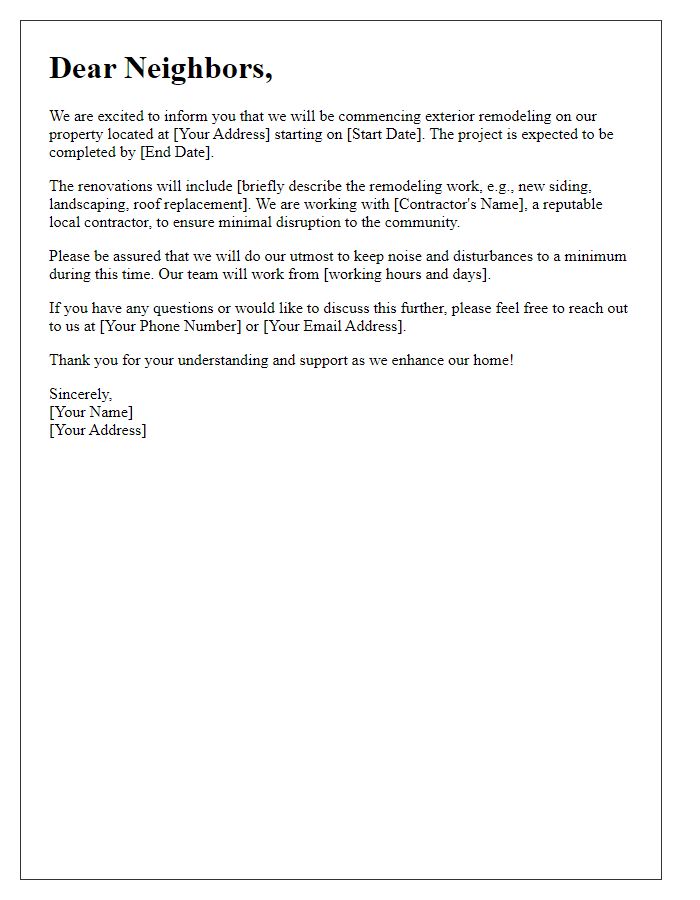

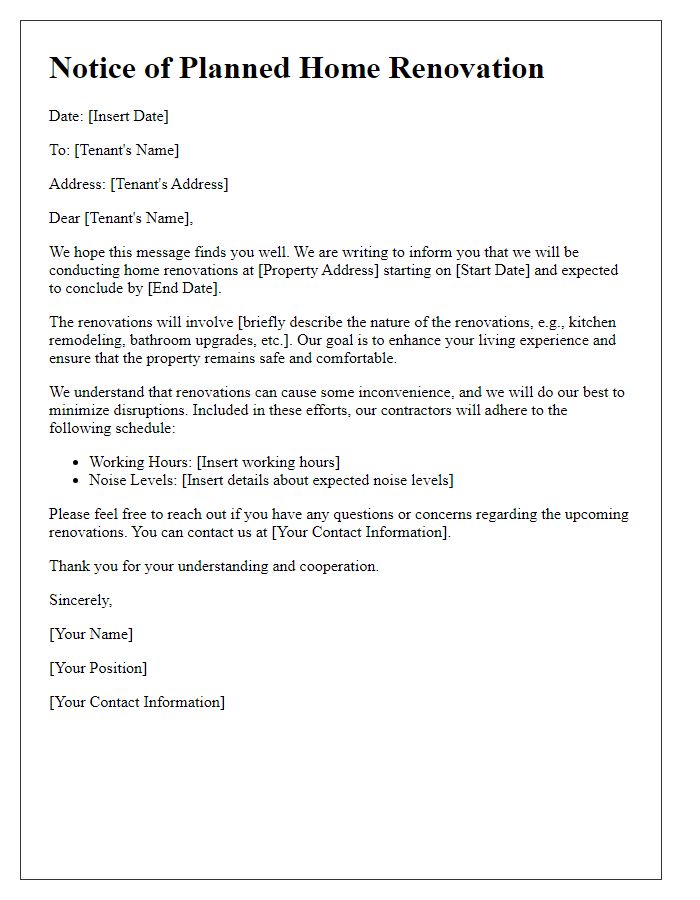
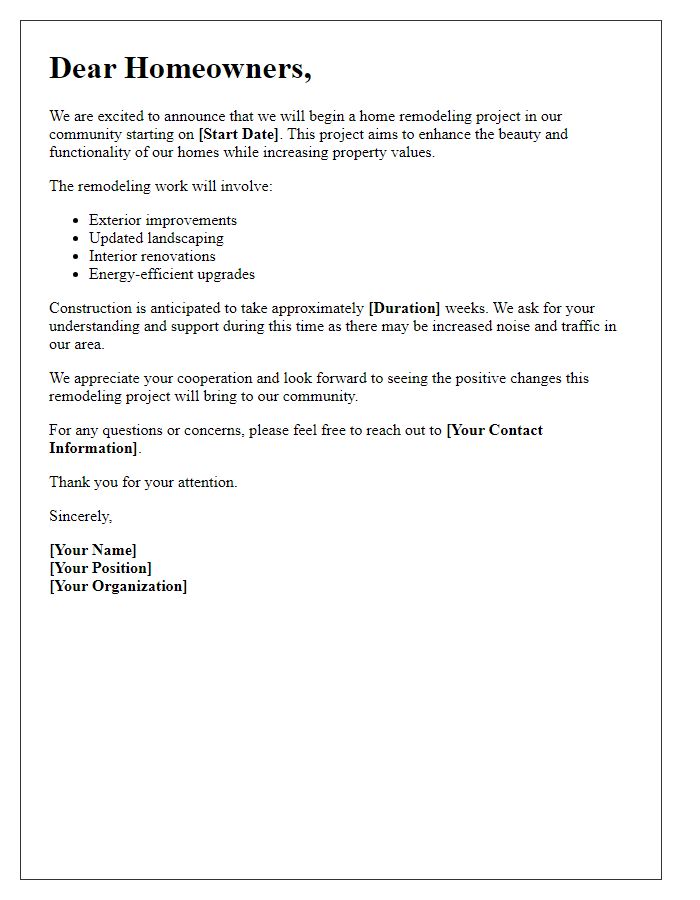
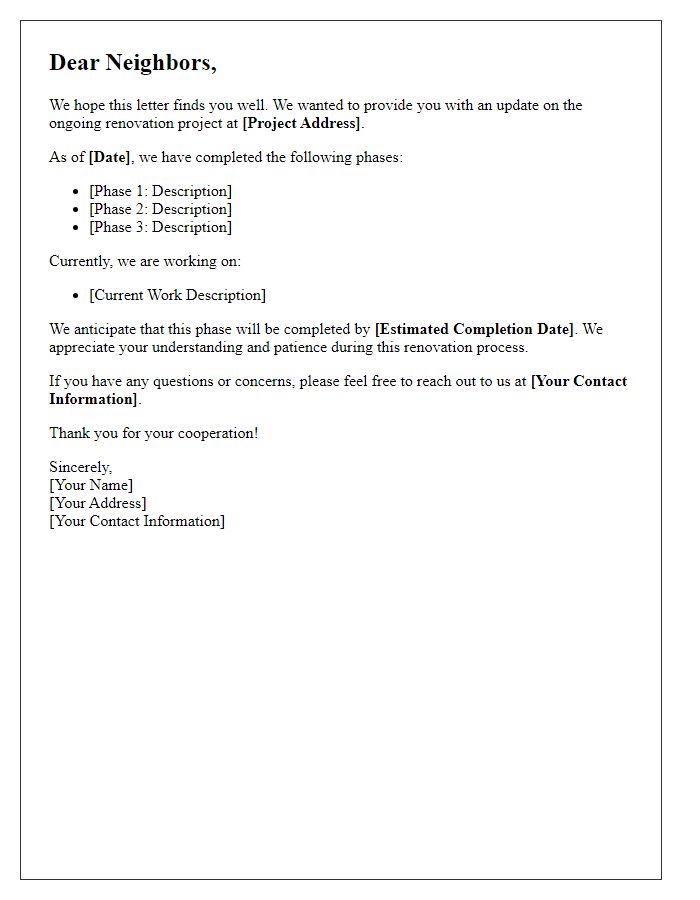
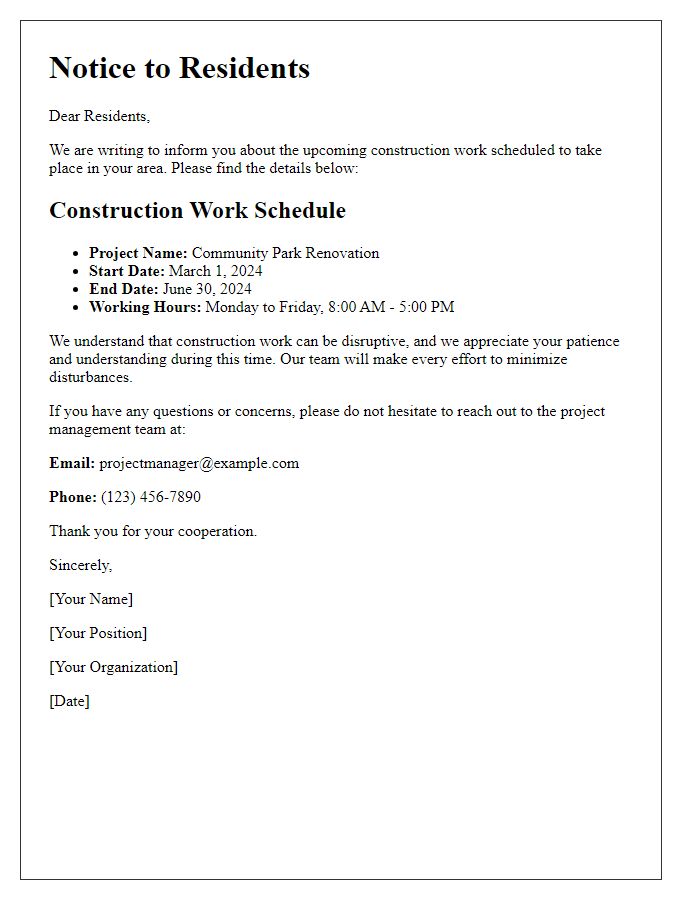
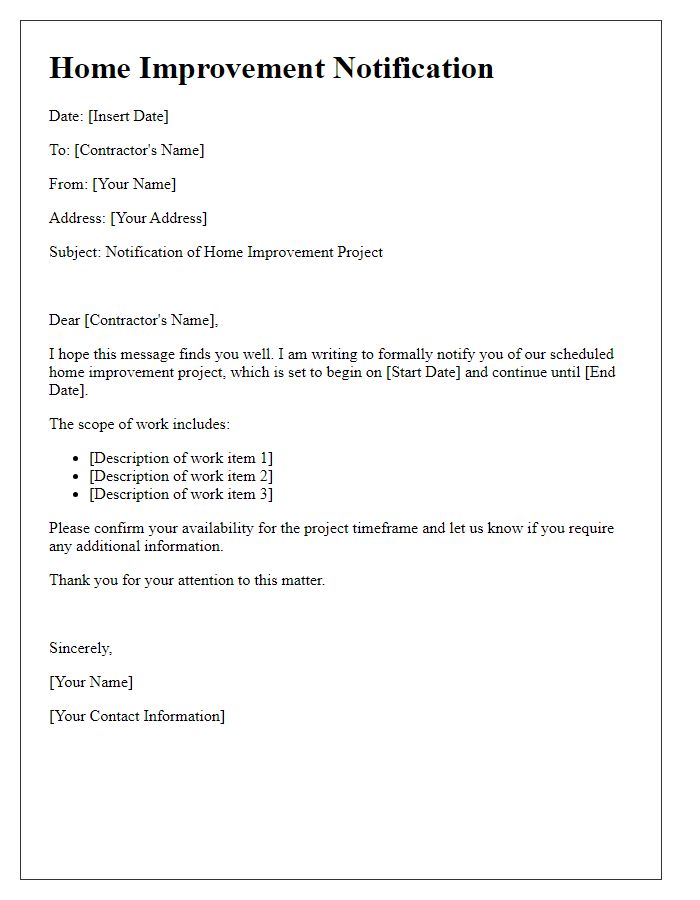
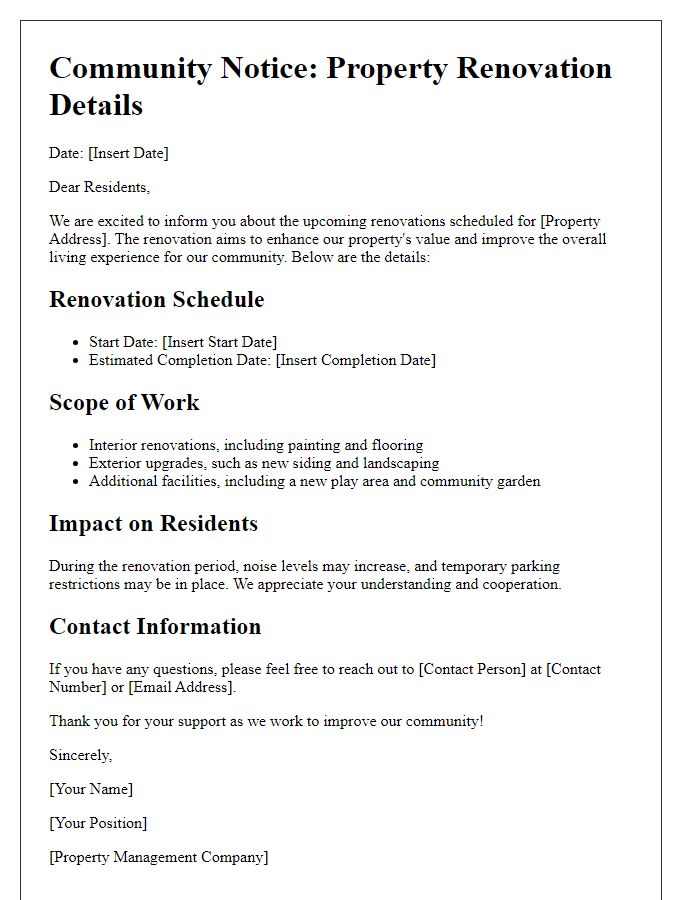
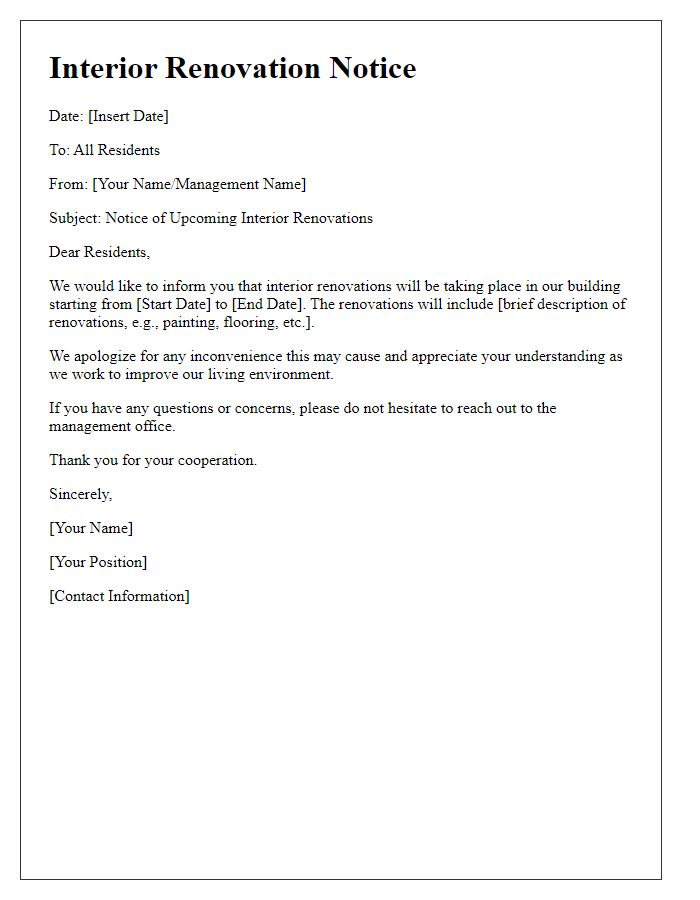
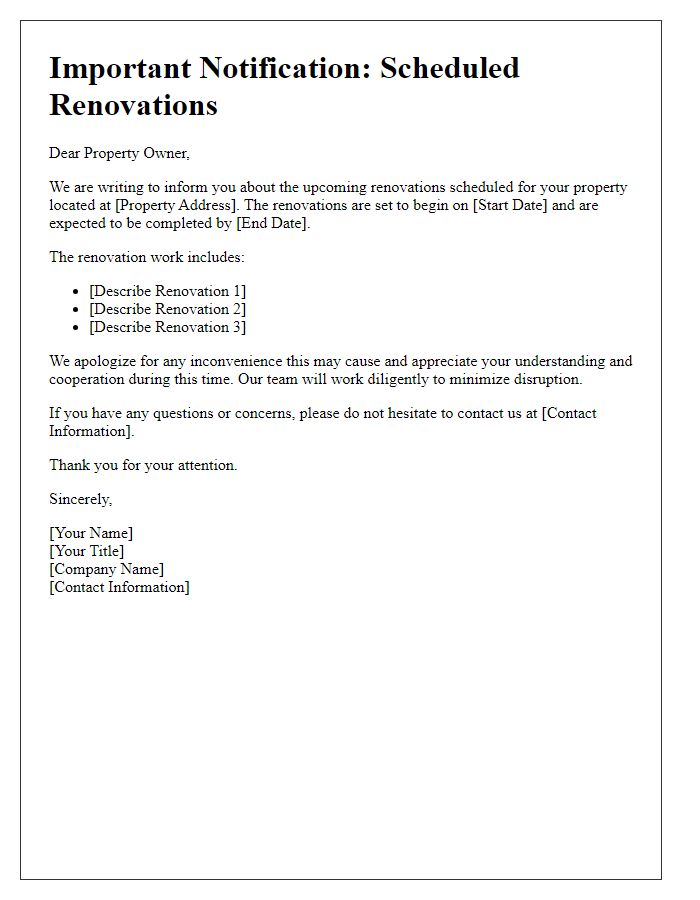
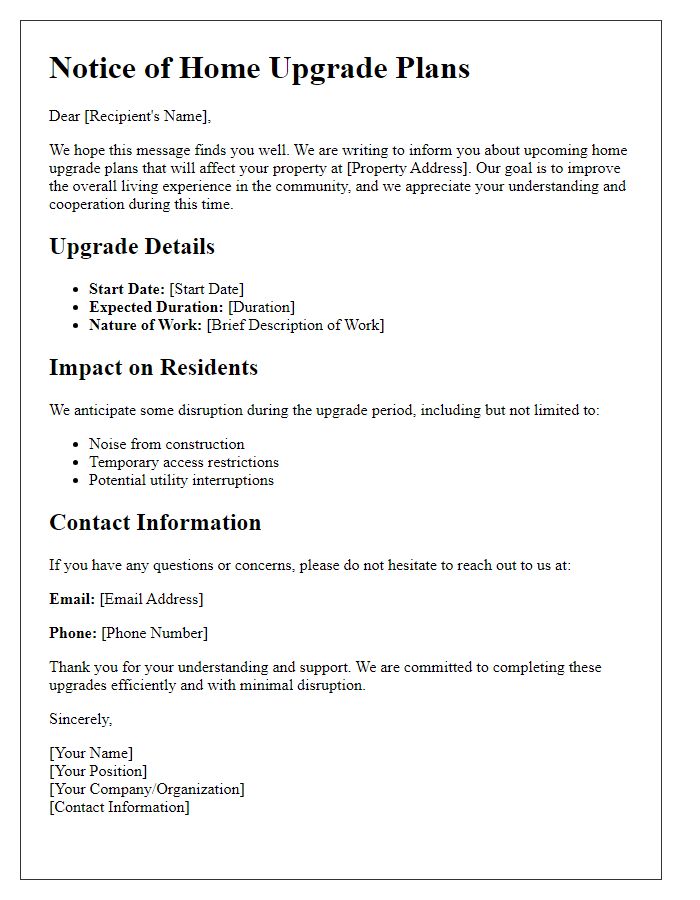


Comments